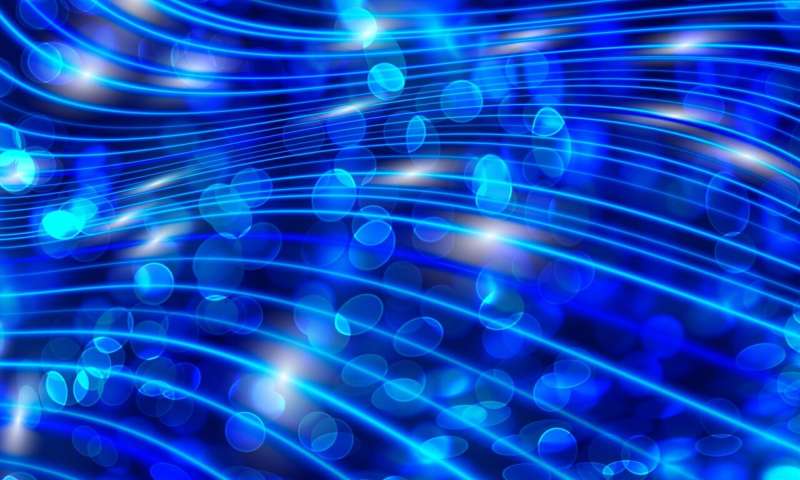
A team of researchers affiliated
with several institutions in China has built and tested a photonic quantum
computer that demonstrates quantum supremacy. In their paper published in the
journal Science, the group describes their computer, which they call
Jiuzhang, and how well it performed while conducting Gaussian boson sampling.
Quantum computers have been in the news lately as scientists try to determine if they can meet expectations. Quantum computers could vastly outperform conventional machines on certain tasks. The goal is to achieve what has come to be known as" quantum supremacy"—where a quantum computer can outperform conventional computers on at least one type of task. Until now, only one computer has ever achieved this feat—Google's Sycamore device. And because the field is still so new, researchers around the world are working on vastly different designs. Sycamore was based on qubits represented by superconducting materials. In this new effort, the team in China has developed a photon-based quantum computer capable of carrying out a single specific type of calculation—boson sampling.
Boson sampling is a means for calculating the output of a straight-line optical circuit that has multiple inputs and outputs. It is carried out by constructing a machine in which photons are sent into a circuit in parallel, and once inside, are split by beam splitters. The split photons continue through the circuit, encountering mirrors and other beam splitters. Notably, if two photons happen to encounter the same splitter simultaneously, both unsplit photons will follow one of the paths away from the splitter. The process is repeated, resulting in a distribution of numbers that represent the network output. Conventional computers become bogged down very quickly when trying to calculate distributions of such a system. Jiuzhang was built to handle 100 inputs and 100 outputs using 300 beam splitters and 75 mirrors.
The researchers found that it took Jiuzhang approximately 200 seconds to provide an answer. They noted that it would have taken the world's fastest supercomputer approximately 2.5 billion years to carry out the same calculations—a clear example of quantum supremacy.

 Previous page
Previous page Back to top
Back to top







